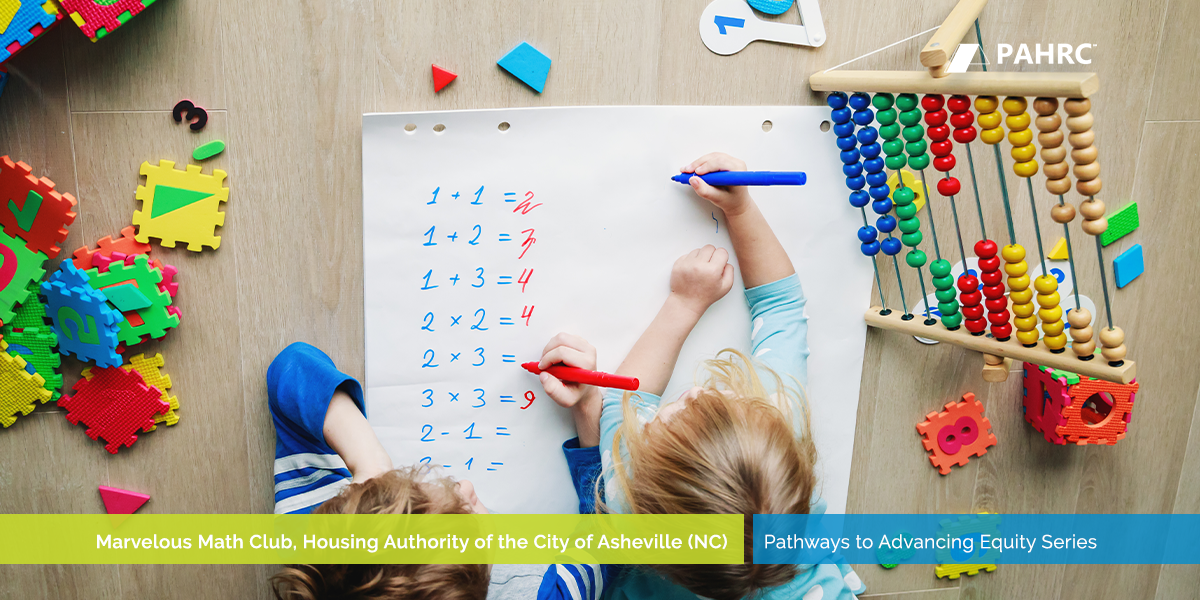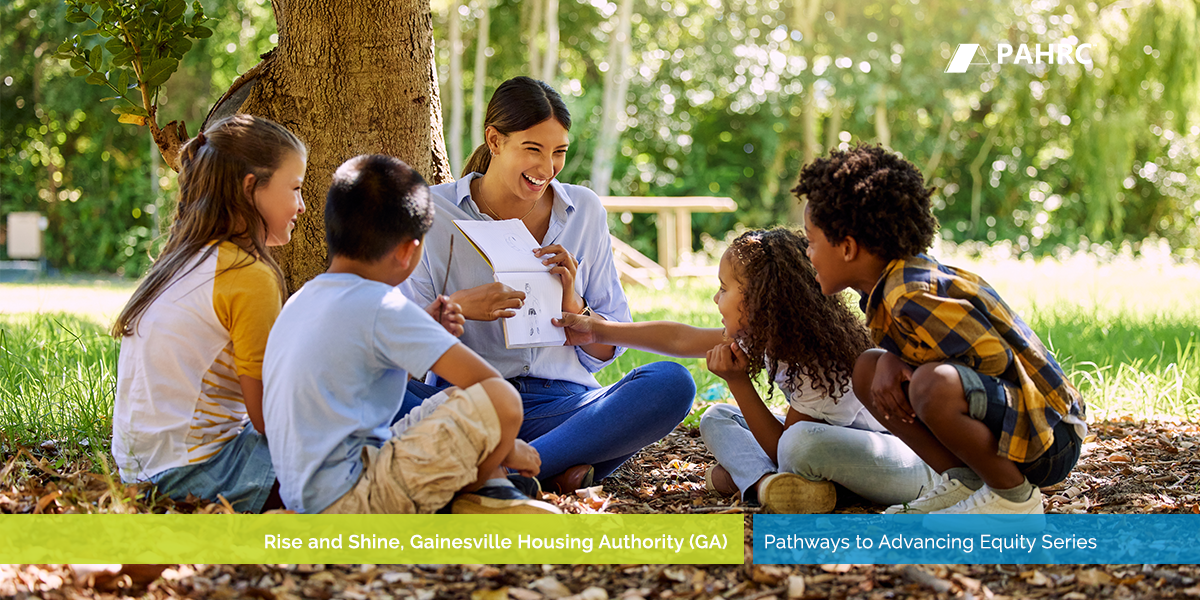Challenge
Residents of Pisgah View Apartments expressed a need for support in helping their children learn math. They requested HACA to explore initiatives that would enhance their children's math skills and overall academic performance.
Solution
In 2016, HACA partnered with the University of North Carolina-Asheville and Asheville City Schools to launch a weekly homework support program, which was later rebranded as the Marvelous Math Club (MMC). This initiative aimed to provide targeted math assistance to children residing in the community, ensuring they received the support needed to improve their skills and confidence in the subject.
Implementation
UNC Asheville students initially hosted the weekly program, but attendance was limited despite community interest. To enhance engagement, the organizations rebranded their efforts to empower students through a unique model that integrates math and psychology. They promoted MMC with fliers and by going door-to-door to invite families.
Club volunteers, known as Math Champions, utilize asset- and justice-based language to foster confidence and inclusivity among the participating children, referred to as Math Leaders. MMC meets weekly, allowing Math Leaders to choose from various activities, including self-care, play, homework, and sharing math concepts they’ve learned. Champions create a supportive environment by providing a quiet space, tools to visualize math concepts, paper, fidget toys, laptops, and other resources to aid their learning journey. At the end of each meeting, the Champions lead a sharing circle, encouraging Leaders to discuss how they and others demonstrated leadership.
To further promote math development, Champions ask Leaders to demonstrate or explain their thought processes. Math is made enjoyable by integrating it into everyday activities, such as counting swings on the monkey bars, skips, and basketball scores. Champions also focus on creating a sense of belonging by checking in with Leaders about their day and encouraging conflict resolution through guided discussions about negative feelings.
The incorporation of asset-based language and practices is vital to the program's success. Champions emphasize possibilities by using terms like “support,” “encourage,” and “beneficial,” rather than “help,” which may suggest barriers or deficiencies. They prefer terms like “priority” or “interest” over “need,” which can imply a lack.
As participation increased, the MMC expanded its recruitment efforts, bringing in more Champions from local community colleges, high schools, and the community, including former Leaders.
Impact
Teachers observed that students participating in MMC showed increased confidence in the classroom, displayed supportive behavior toward their peers, and became more engaged in math. This positive impact highlights the effectiveness of the MMC in fostering a collaborative and encouraging learning environment that not only enhances math skills but also promotes social development among students.
Conclusion
MMC exemplifies how community-driven initiatives can promote academic growth, boost confidence, and cultivate leadership skills in children. Thanks to the inclusive and supportive environment fostered by the program, students have been empowered to integrate math into their daily lives through the collaborative efforts of HACA and its partners.
For further insights and similar case studies, refer to the full report using the button below.
This article is for general information only. HAI Group makes no representation or warranty about the accuracy or applicability of this information for any particular use or circumstance. Your use of this information is at your own discretion and risk. HAI Group and any author or contributor identified herein assume no responsibility for your use of this information. You should consult with your attorney or subject matter advisor before adopting any risk management strategy or policy.






